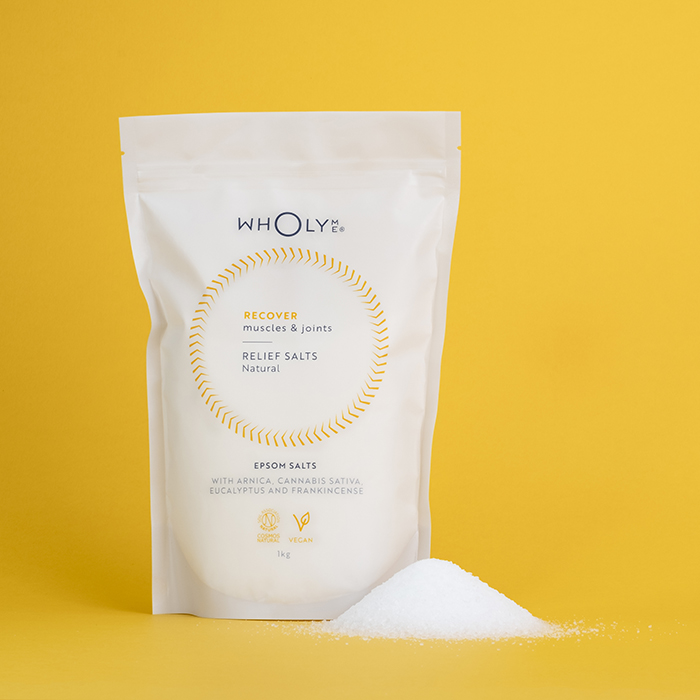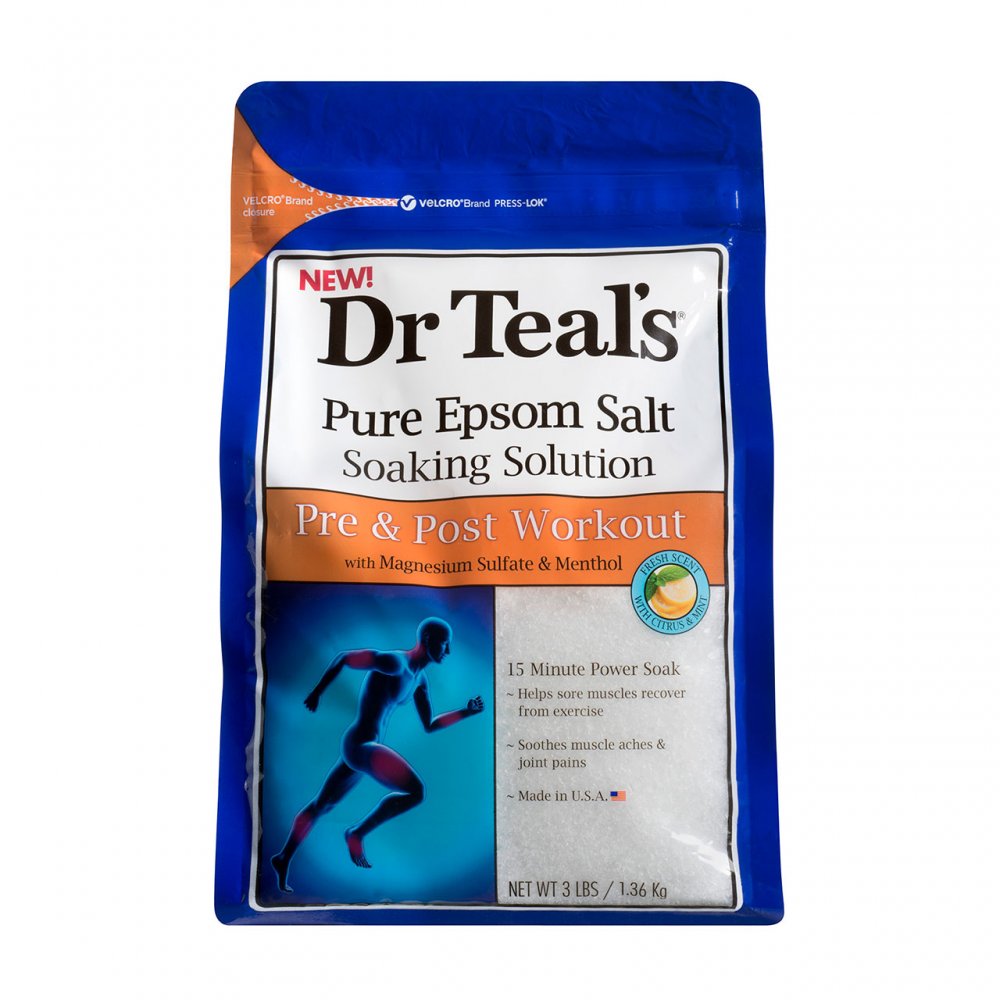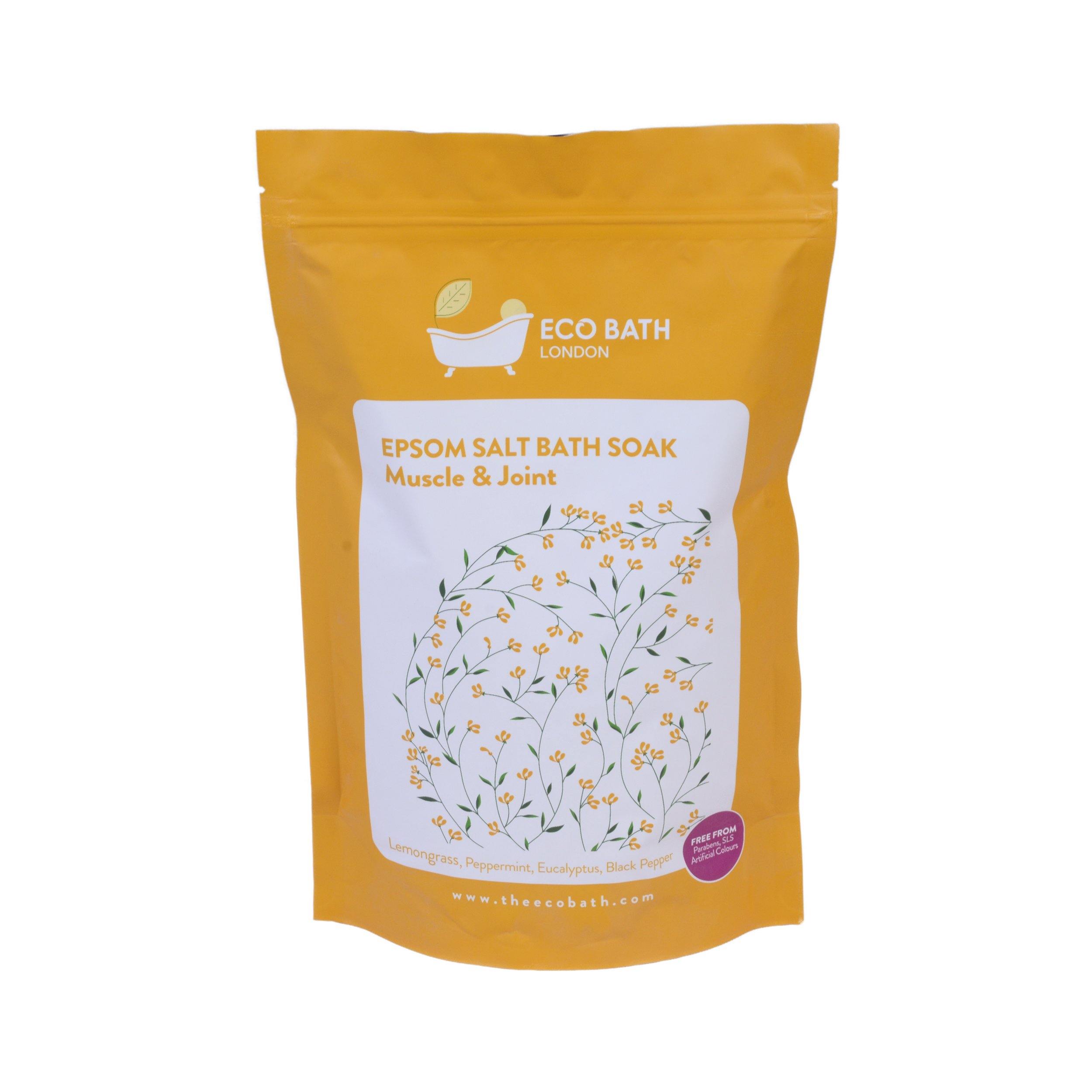Best Epsom salt for triathlon recovery
One of the simplest and quickest ways to relieve tired and sore muscles after a hard session or race is to soak in an Epsom salt bath. Here's everything you need to know about this cheap recovery aid, plus five of the best to buy

Epsom salt is a naturally occurring mineral salt and is also known as magnesium sulphate. Resembling table salt, it’s most commonly used a bath soak to to help relieve stress and sore muscles.
The name ‘Epsom salt’ refers to the town of Epsom, near London, in England, where the salt from a saline spring is said to have been discovered about 400 years ago.
Most people don’t consume enough magnesium in their diet, so many believe that it can be absorbed through the skin in an Epsom salt bath.
Although there are no definitive studies showing that magnesium can actually be absorbed through your skin in sufficient amounts to address potential deficiencies of the mineral. And what research has been done offers skepticism.
What are the benefits of magnesium for athletes?
Magnesium is essential for maintaining good health and plays a key role in everything from exercise performance to heart health and brain function.
Pumpkin seeds, boiled spinach, almonds, chia seeds, peanut butter and avocados are a few examples of magnesium-rich foods.
Is Epsom salt good for muscle recovery?
Magnesium helps move blood sugar into your muscles and dispose of lactate, so getting enough in your diet is key.
But some people claim that taking Epsom salt baths can also reduce muscle soreness and relieve cramps — both important factors for exercise performance and recovery.
Relaxing in a hot bath certainly has the effect of soothing aching muscles, but there’s no actual scientific evidence that people absorb bathwater magnesium through their skin, so any benefits are purely anecdotal.
Athletes are prone to low magnesium levels, so health professionals often recommend that they take magnesium supplements to ensure optimal levels.
Why does Epsom salt help muscles?
Again, based mostly on anecdotal evidence, when you soak in an Epsom salt bath, the magnesium may be absorbed into your body through the skin, which may help relax muscles, reduce swelling and pain from arthritis, and relieve pain from fibromyalgia (a long-term condition that causes pain all over the body) and various causes.
Even if it is a placebo effect, there are no side effects from simply having a nice long soak in a warm bath!
How long should an athlete soak in Epsom salt?
Two to three times a week for approximately 30 minutes each bath.
- Can hot baths help you prepare for hot races?
- Ice baths: new research questions benefits for exercise recovery
- Struggle to sleep after exercise?
Is Epsom salt good before a race?
There’s no reason why you shouldn’t have an Epsom salt bath the night before a race, as studies indicate that having any kind of warm bath before bed can aid sleep – which is key before a long day racing triathlon.
Personally, we’d save the Epsom salt bath for after a race, to make the most of any potential muscle-recovery benefits.
Who shouldn’t use Epsom salt baths?
Pregnant or breastfeeding women are advised not to have Epsom salts baths.
Best Epsom salt for sore muscles in 2022
WholyMe Relief Salts

Pitched as the “ultimate post work-out recovery”, WholyMe’s 1kg Relief Salts contain naturally occurring Epsom salts blended the salts with organic certified essential oils and botanicals – arnica, eucalyptus, cannabis, and frankincense – which are designed to “enhance recovery for muscles and joints.”
The result is an extremely pleasant and fragrant bathing experience for both body and mind. Plus they leave both your body and bathroom smelling divine!
Directions for use: add 2-3 handfuls (200g) to a warm bath. Increase amount for a more intensive experience.
Westlab Reviving Epsom Bath Salt

Westlab’s Epsom salts are fragrance-free, 100% natural, pharmaceutical grade and responsibly sourced. They recommend adding the salts to a warm bath (“37-39°C is ideal”) and soaking for at least 20 minutes.
Aimed squarely at active individuals, they also suggest using around 100-250g (1/2-1 cup) 2-3 times per week, ideally after exercise. Following intense exercise, such as a marathon or triathlon, they advise using a full 500g-1kg after the event “to help prevent DOMS“.
Dr Teal’s Pure Epsom Salt Soaking Solution for Pre and Post Workout

Dr Teal’s Epsom Salt Soaking Solution for Pre & Post Workout are again pitched at athletes and combine pure Epsom salt and menthol for a thoroughly relaxing, nasal-cleansing bathtime routine. Think soaking in a tub of Vicks VapoRub or Olbas Oil!
They advise pouring at least 2 cups of Dr Teal’s Soaking Solution under warm, running bath water before soaking for 20 minutes to “feel relaxed & rejuvenated”. Repeat twice a week.
It can also be used as an exfoliant to “slough away dry patches, revealing a healthier-looking complexion.”
Eco Bath London Muscle & Joint Epsom Salt Bath Soak

The 1kg pouch of Eco Bath London Muscle and Joint bath salt soak provides a “remedial blend” of Epsom salt and healing essential oils, which include lemongrass, peppermint, eucalyptus and black pepper.
Their recommended use is 250g added to a warm bath.
Better You Magnesium Muscle Bath Flakes

BetterYou Magnesium Muscle Flakes use zechstein magnesium, which, on further research is the good stuff!
Highly pure and a natural form of magnesium, it’s named after the Zechstein Sea, which was an active ocean 250 million years ago, when dinosaurs still roamed the earth.
Beds of magnesium chloride were formed in the Zechstein by a process of sea water floods and very slow evaporation. Today these beds stretch from the east coast of the UK to Poland.
The 1kg pouch of salts also contains lemon and rosemary for a fragrant and relaxing post-workout, muscle-recovery experience.
The salts are certified vegan and palm oil-derivative free, while the packaging is fully recyclable.




